Shizuka Nouen envisions a new era of luxury tea【Kawane Tea, Shizuoka Prefecture】
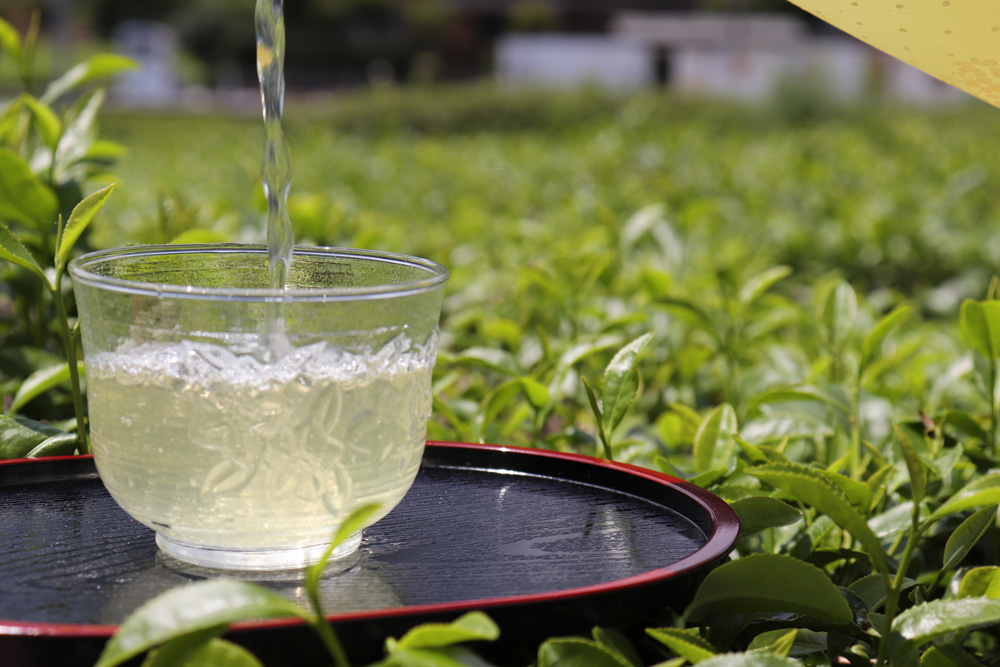
The Oi River meanders through the heart of Shizuoka Prefecture, where Kawanehoncho, renowned as one of Japan’s premier tea-growing regions, flourishes along its middle reaches. Originating from the majestic Mt. Ainodake in the Akaishi Mountains and winding its way to Suruga Bay, the river creates a haven for tea cultivation. Here, amidst ample rainfall, gentle sunlight, and stark temperature differentials between day and night, lies the idyllic setting for tea farming.
In this article, we delve into the story of Shizuka Nouen, nestled in Motofujikawa, Kawanehoncho, Shizuoka Prefecture. Embracing a commitment to sustainable and socially responsible practices, Shizuka Farm eschews pesticides and chemical fertilizers in its pursuit of environmentally friendly tea production.
Furthermore, we explore the allure of Shizuka Nouen’s exceptional teas, while engaging in an insightful conversation with its owner, Mr. Konishi. Through his perspective, we gain profound insights into how the landscape of rare, high-quality tea has evolved amidst the currents of change.
Contents
- 1 About Shizuka Nouen
- 2 An Introduction to Shizuka Nouen’s Teas
- 3 Interview: Exploring the Era of Luxury Tea through the Lens of Shizuka Nouen’s Harmony with Nature.
- 3.1 Embracing Harmony: Shizuka Nouen’s Tea Gardens and Ecosystem Coexistence
- 3.2 Prioritizing Quality and Customer Satisfaction Over Competitive Endeavors
- 3.3 The Future of the Tea Industry: Drawing Lessons from the Automotive Sector
- 3.4 Good News for Tea Lovers! The Opportunity to Indulge in Rare and Exquisite Teas Conveniently.
- 4 Information Of Shizuka Nouen
About Shizuka Nouen
Shizuka Nouen, situated in Motofujikawa, Kawanehoncho, is a comprehensive tea farm overseeing every aspect of the tea-making process, from cultivation to production and distribution.
Steeped in tradition, the farm is currently under the stewardship of its fourth-generation owner, Mr. Nobuyuki Konishi.
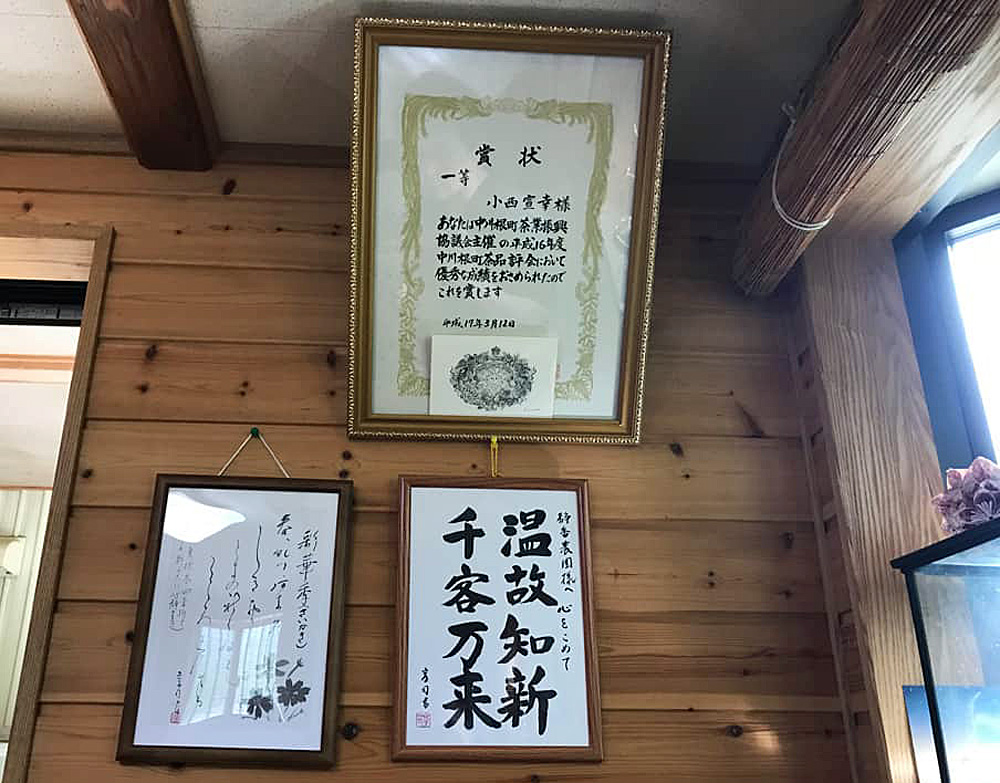
At Shizuka Nouen, an air of exclusivity surrounds its offerings.
The farm itself remains unmarked, lacking a storefront or prominent signage. Prospective visitors are encouraged to arrange appointments in advance, though it’s important to note that access is restricted during the bustling new tea season from April to May.
An Introduction to Shizuka Nouen’s Teas
Delving into the essence of Shizuka Nouen’s teas unveils a journey through the verdant landscapes of northern Kawane. Nestled amidst sloping terrains, the tea gardens experience significant temperature differentials between day and night, coupled with abbreviated daylight hours, culminating in a lower yield per unit area compared to the plains. Embracing a philosophy of harmonizing cultivation with the natural ecosystem demands heightened labor and dedication.
Presently, Shizuka Nouen boasts an array of tea cultivar, including Yabukita, Okuhikari, Sakura Midori (Shizuka 7132), Tsuyuhikari, Shizukaori, and Harumidori.

To accentuate the unique qualities of the freshly harvested leaves from Shizuka Nouen, meticulous shallow steaming and precise finishing take place at the estate’s dedicated tea factory.
Shizuka Nouen predominantly retails its tea online, offering accessibility to enthusiasts far and wide. Additionally, a select range of teas finds their way to brick-and-mortar retail through Sentokan, a charming cafeteria situated conveniently in front of Senzu Station in Kawane.
Below, we present a curated sampling of Shizuka Nouen’s exquisite teas.
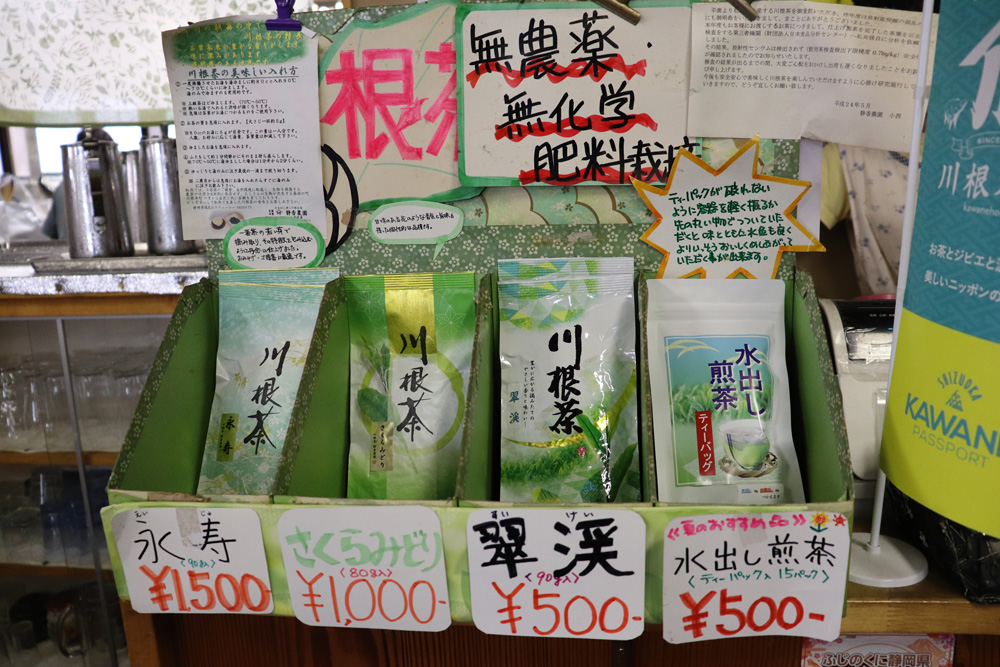
Eiju
Eiju, a distinguished sencha, is crafted by delicately plucking the youngest tea leaves, known as ‘miru’ buds, and subjecting them to precise shallow steaming. This meticulous process extracts and amplifies the tea’s inherent characteristics to perfection.
Embodied within each sip of Eiju is a symphony of aromas, nourishment, sweetness, and subtle bitterness—a treasure sure to delight even the most discerning of tea aficionados. Perfectly suited as a cherished souvenir, Eiju embodies the essence of exquisite tea craftsmanship.
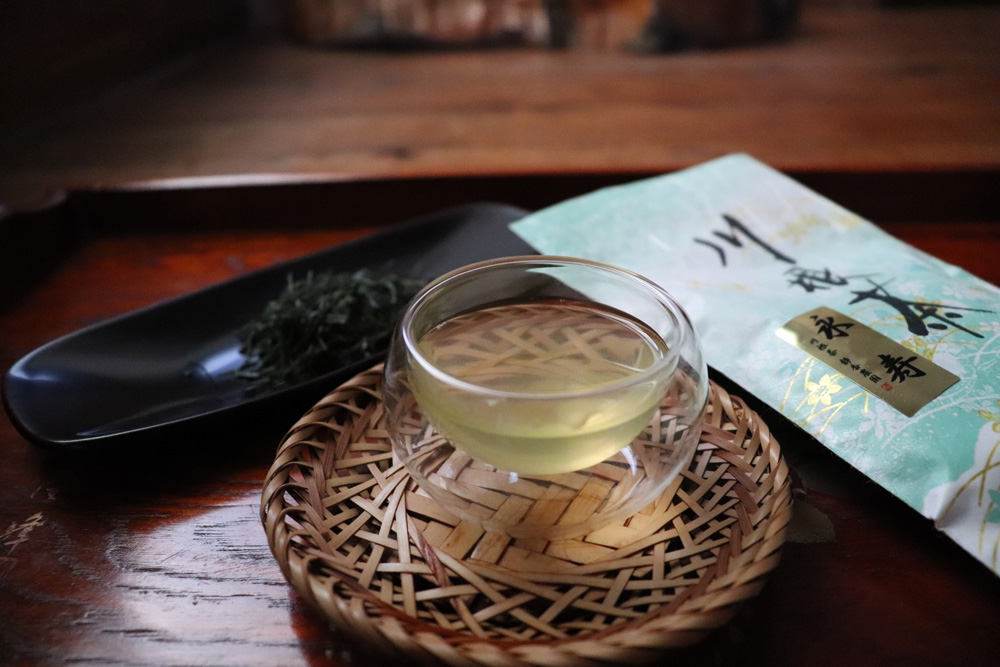
Sakura Midori
Sakura Midori, a captivating sencha, exudes a delightful sweetness and an enticing flavor profile. Named for its redolent aroma reminiscent of cherry blossoms, Shizuka Farm aptly christened it ‘Sakura Midori’. In the Shimizu region of Shizuoka Prefecture, it is also affectionately referred to as ‘Machiko’. Variants such as ‘Shizu 7132’ and ‘Sakura Kaori’ are recognized by different regions.
Interestingly, according to Konishi, this tea holds a particular allure for the French palate.
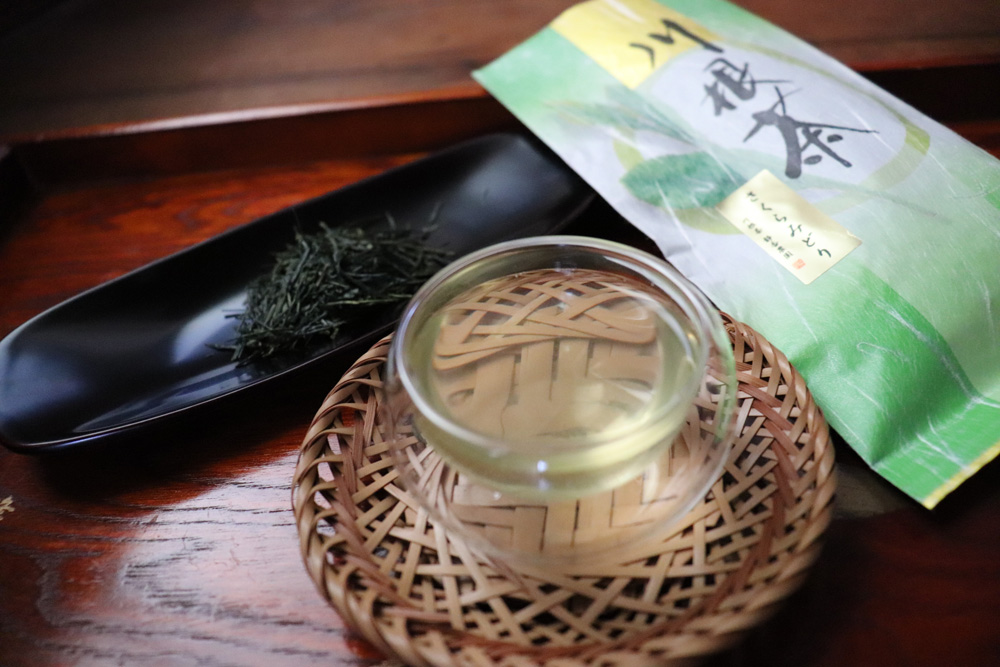
Among Shizuka Nouen’s diverse offerings is Harumidori, characterized by its indulgent aroma and rich flavor profile. Additionally, the lineup features Japanese Black Tea, also known as ‘Miyama Black Tea’
For those seeking a fusion of flavors, the selection includes Yuzu Genmaicha, a harmonious blend of organic brown rice and zesty yuzu (citron) infused with high-grade sencha green tea—a tantalizing symphony of taste and aroma.
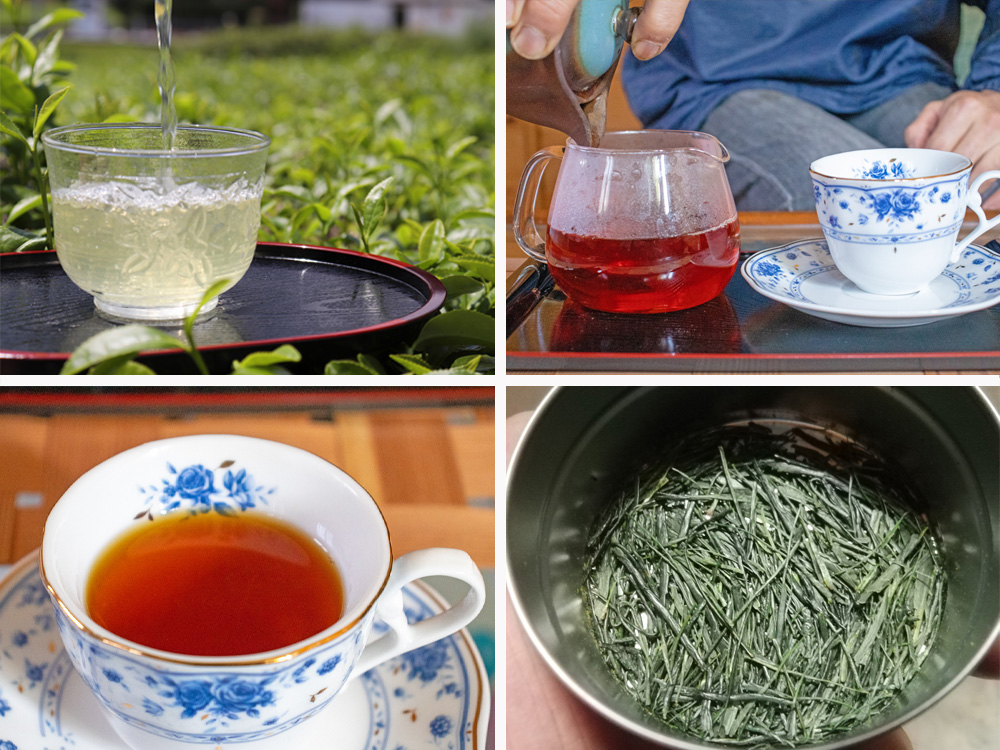
Interview: Exploring the Era of Luxury Tea through the Lens of Shizuka Nouen’s Harmony with Nature.
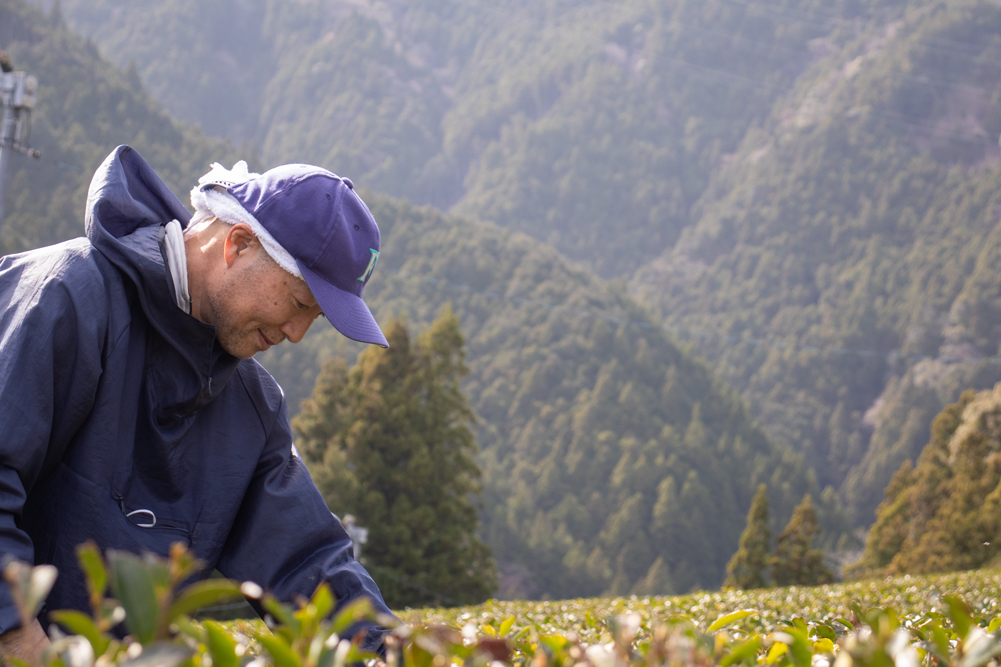
We spoke to Mr Nobuyuki Konishi, owner of Shizuka Nouen.
Embracing Harmony: Shizuka Nouen’s Tea Gardens and Ecosystem Coexistence
–Can you share with us some insights into Shizuka Nouen?
Shizuka Nouen is deeply rooted in the Motofujikawa region of Kawanehoncho, where we’ve been cultivating, crafting, and selling tea for generations. Our farm is nestled in a serene environment, where the symphony of birdsong and the gentle hum of insects harmonize with the crisp, clean air. Personally, I am deeply enamored with this lush natural setting.
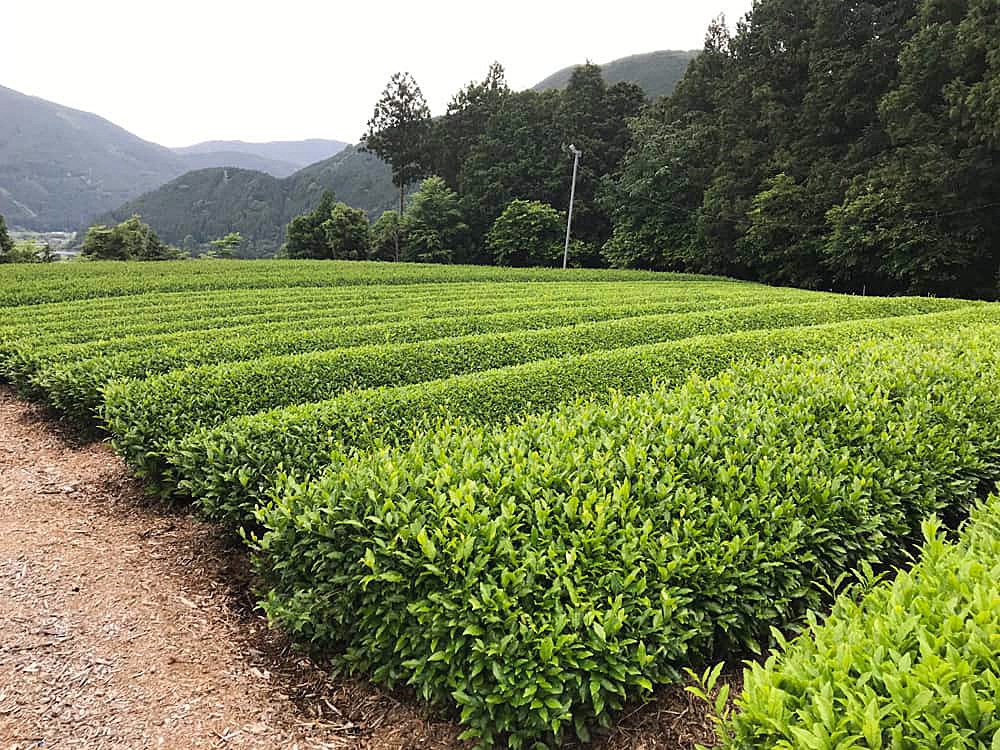
To maintain the delicate balance of our ecosystem and ensure the safety and quality of ‘Kawane Tea,’ we practice tea cultivation without the use of synthetic chemical fertilizers and pesticides. This approach minimizes disruptions to the natural system, preserving ecological harmony for generations to come.
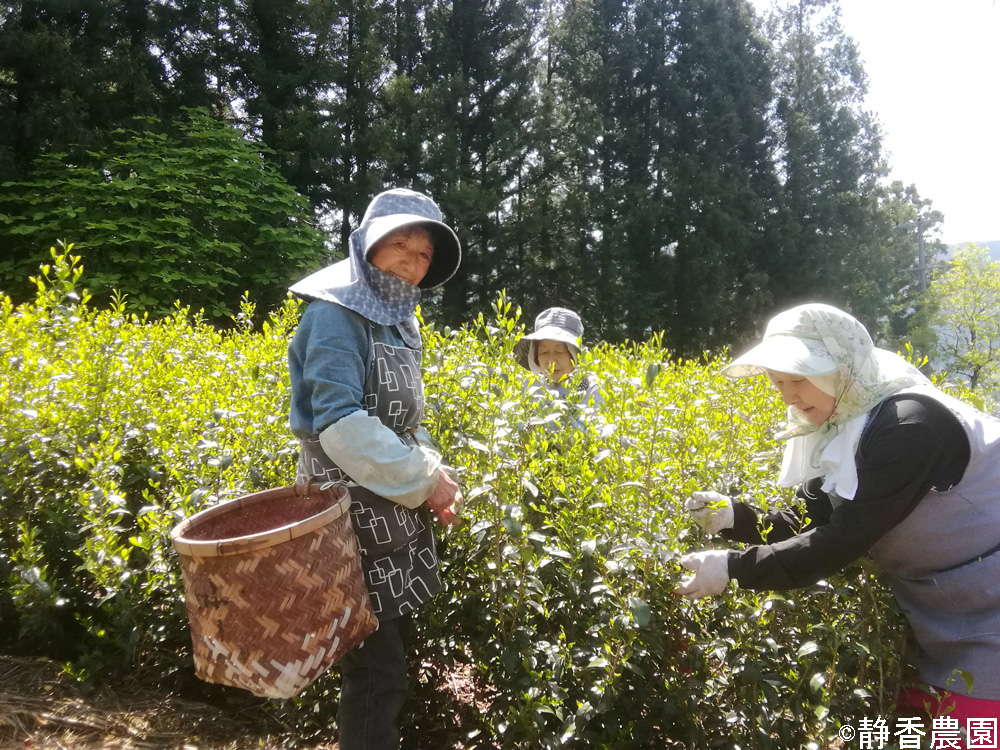
Through dedicated efforts to cultivate healthy soil, our tea plantation has blossomed into an oasis, fostering a diverse ecosystem where microorganisms and insects thrive in harmony. Visitors, including birds and other wildlife, are drawn to this vibrant environment, showcasing the success of our commitment to nurturing a sustainable ecosystem.
–You are committed to coexistence with nature and living organisms in your tea production.
Absolutely, at Shizuka Nouen we prioritize harmonious coexistence with nature throughout our tea production process. While our tea is proudly grown in accordance with organic JAS standards, I want to emphasize that the choice between organic and conventional methods isn’t about one being inherently better or worse. It’s crucial to recognize that pesticides and chemical fertilizers, when used responsibly, can also contribute positively to agricultural sustainability.
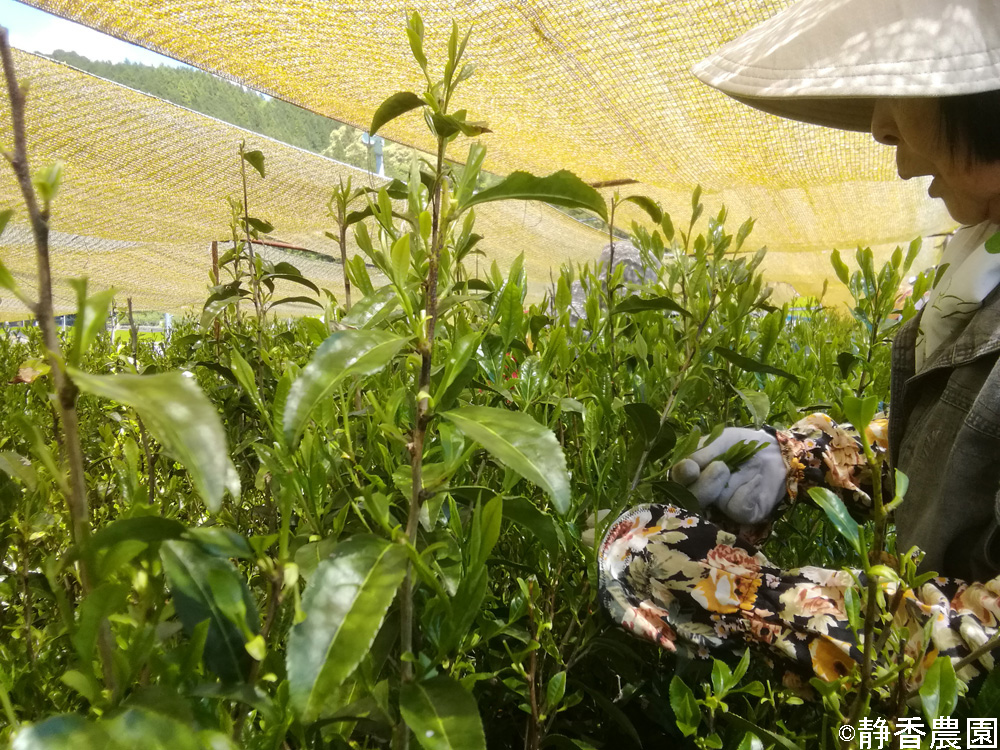
Tea growers, irrespective of their chosen cultivation method, dedicate themselves to meticulous care and management of their tea gardens. Over time, there have been significant advancements in the formulation and application of pesticides, enhancing their efficacy and minimizing environmental impact. Every effort is made to safeguard tea plants from pests and diseases, ensuring the production of exquisite tea.
Nestled in the mountainous terrain of Kawanehoncho, our region boasts rich natural biodiversity and ecological equilibrium, far surpassing that of urban areas. Recognizing the blessings of our surrounding ecosystem, Shizuka Nouen made a conscious decision to forgo the use of pesticides and chemical fertilizers.
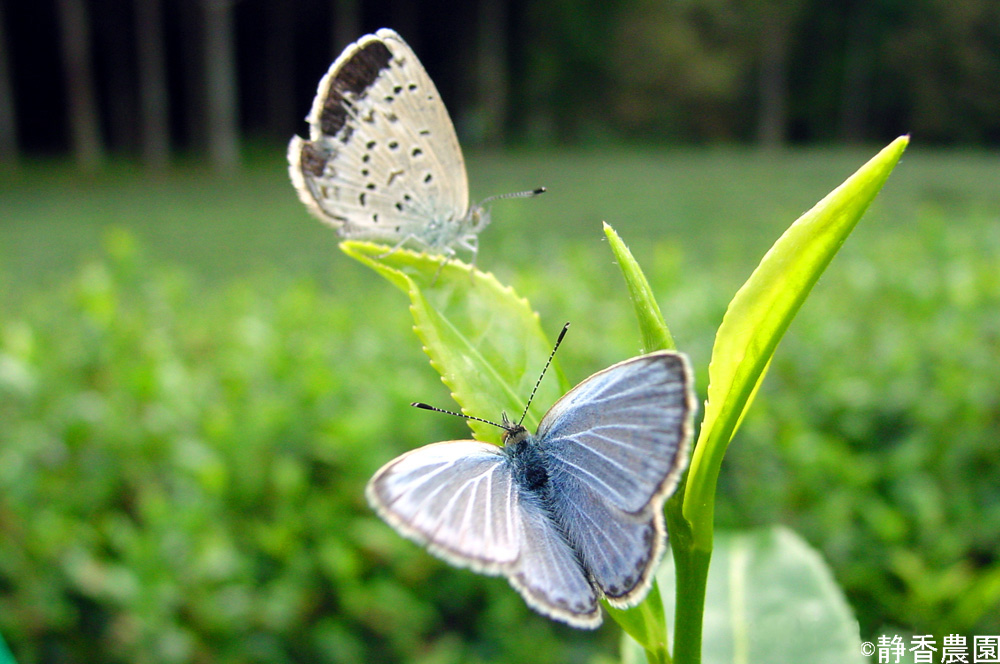
Prioritizing Quality and Customer Satisfaction Over Competitive Endeavors
Shizuka Nouen has earned accolades and prestigious awards at numerous tea fairs in the past. However, our focus has shifted away from frequent participation in such events. Instead, we redirect the energy and resources expended on competitions towards enhancing our production processes to deliver uncompromising quality tea to our customers.
Achieving top honors at tea fairs demands an immense investment of labor. Specialized tea gardens must be meticulously tended to produce the tea destined for competition, requiring heightened effort compared to regular production. The stringent standards set for entry echo the exclusivity of competitive racing circuits, where only the most elite participants are permitted.
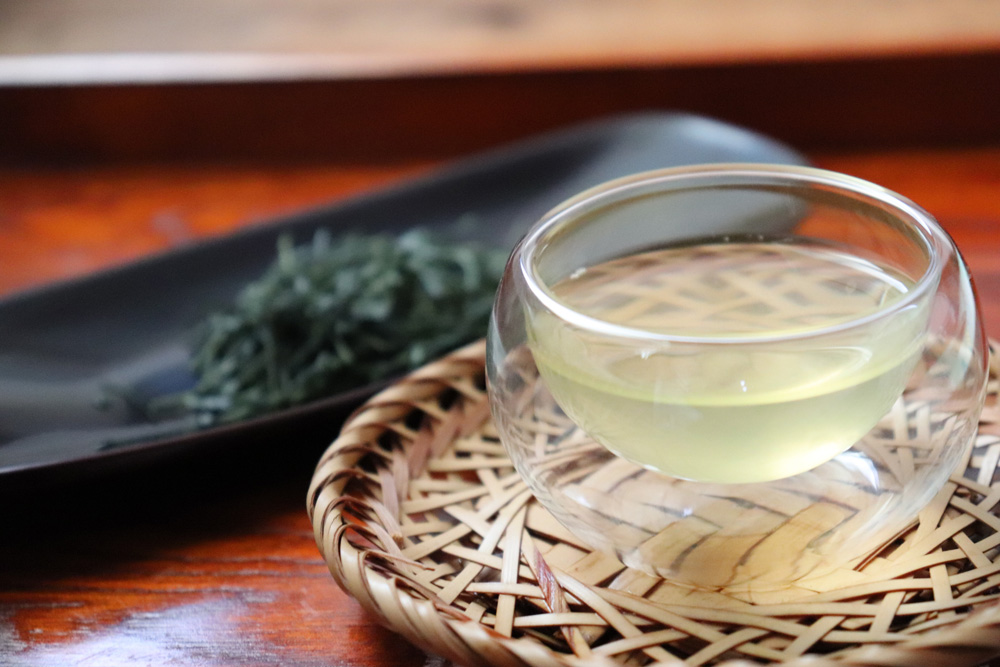
Undoubtedly, winning a top prize is a tremendous honor, serving as a testament to the technical prowess of tea growers and instilling confidence in customers. We hold great admiration for the growers in Kawanehoncho who participate in competitions, as their dedication and spirit of research consistently yield outstanding results nationwide. Their hard work and commitment inspire us all.
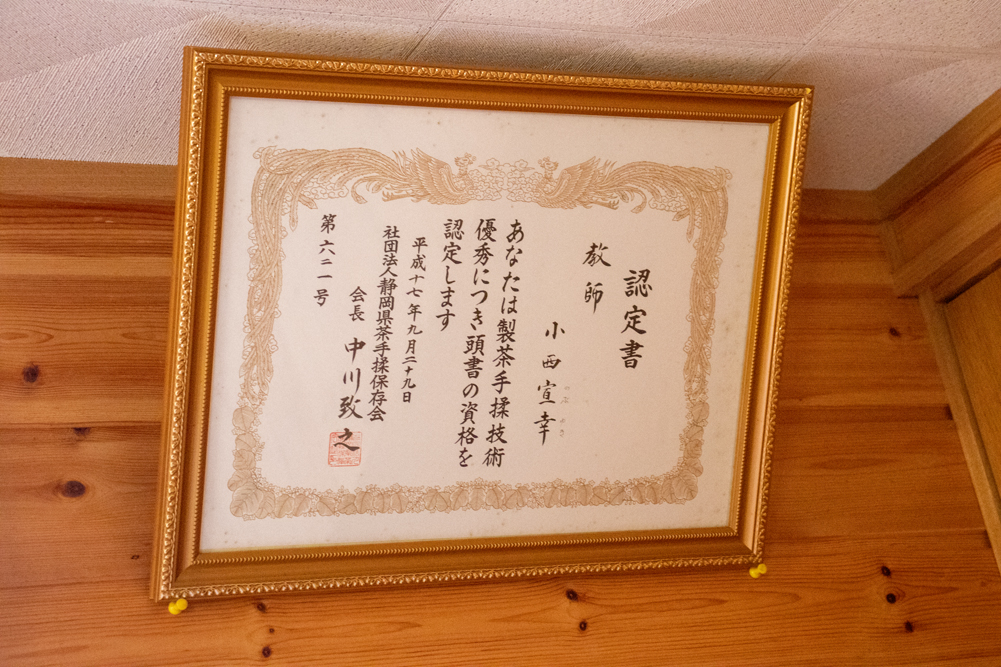
–I see. The comparison to a racing car provides a clear picture of the expenses associated with participating in a tea fair.
Indeed, in today’s context, I view a meticulously brewed premium tea akin to a luxury racing car, such as a Ferrari or Porsche in the automotive realm. Both represent the epitome of performance and craftsmanship, commanding admiration and respect. However, much like you wouldn’t drive a Ferrari or Porsche every day, indulging in a premium tea experience is reserved for special moments, elevating it to a cherished luxury.
–Fascinating analogy. Do you perceive any other similarities between the worlds of cars and tea?
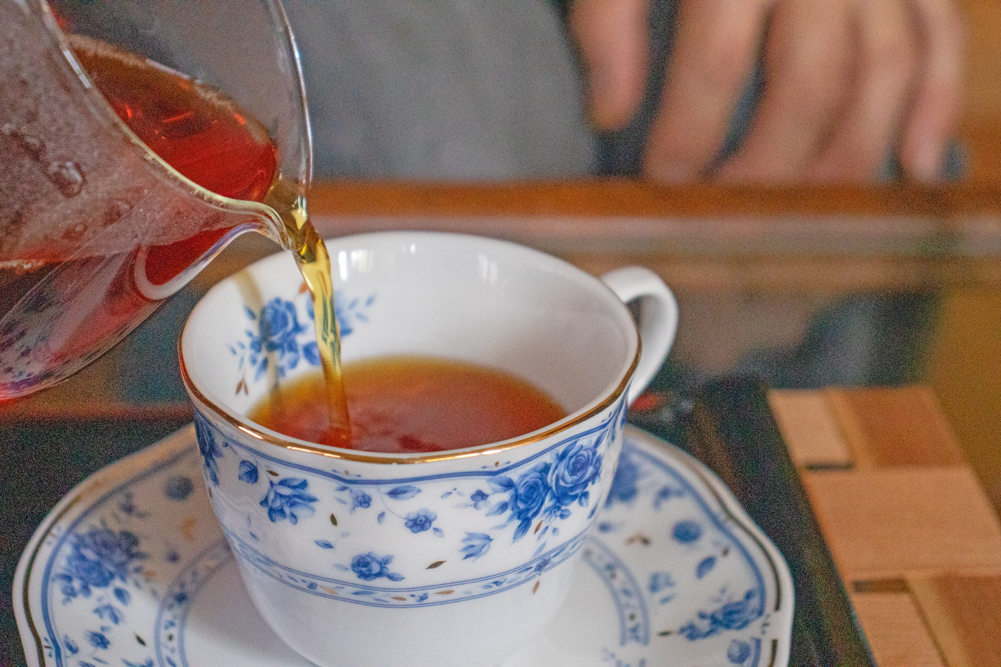
The Future of the Tea Industry: Drawing Lessons from the Automotive Sector
In contemporary society, private car ownership is ubiquitous. Yet, there was a time when cars were considered a luxury, beyond the means of the average consumer.
Against this backdrop, the renowned American car manufacturer Ford embarked on a groundbreaking venture: mass production. By streamlining production processes and achieving economies of scale, Ford aimed to drive down costs and make cars more accessible to the general populace.
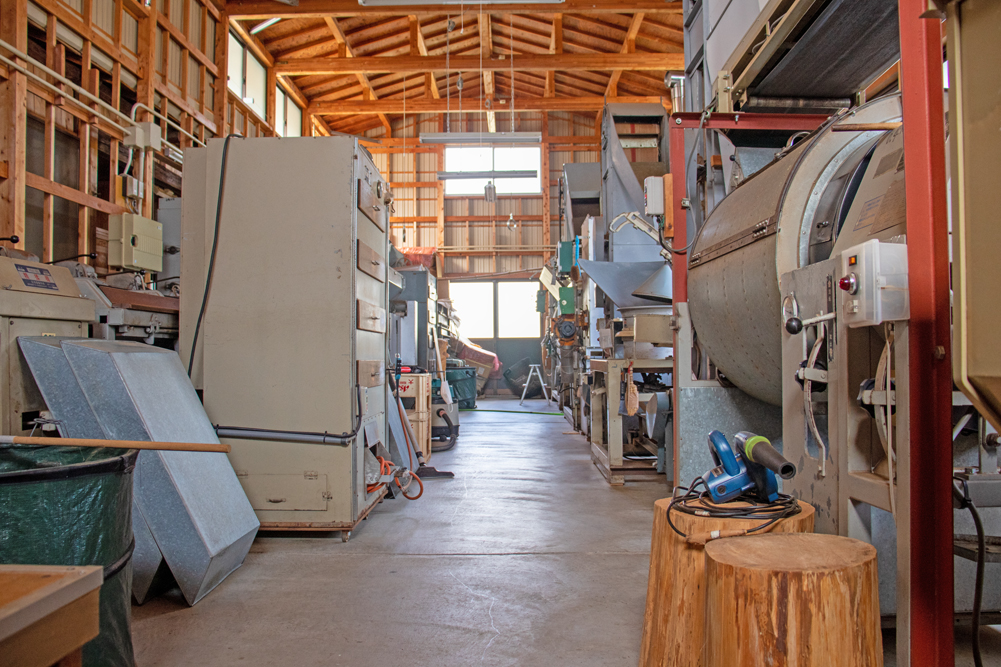
This newfound accessibility allowed individuals who were previously unable to afford a car to join the ranks of car owners, catalyzing growth within the automotive industry and sparking job creation. Government support further fueled this momentum, injecting funds into initiatives aimed at expanding car ownership. Consequently, the economy experienced a surge in activity as capital circulated across various sectors, with the automotive industry leading the charge.
As the economy evolved amidst various challenges, such as periodic oil shocks, consumer preferences began to shift towards ‘affordable, high-quality products’. In response, German automaker Volkswagen entered the market, offering competitive options. Additionally, Japanese-made cars gained traction, prized for their reliability, affordability, and fuel efficiency. This shift in consumer demand propelled Japanese cars to popularity, outpacing their foreign counterparts.
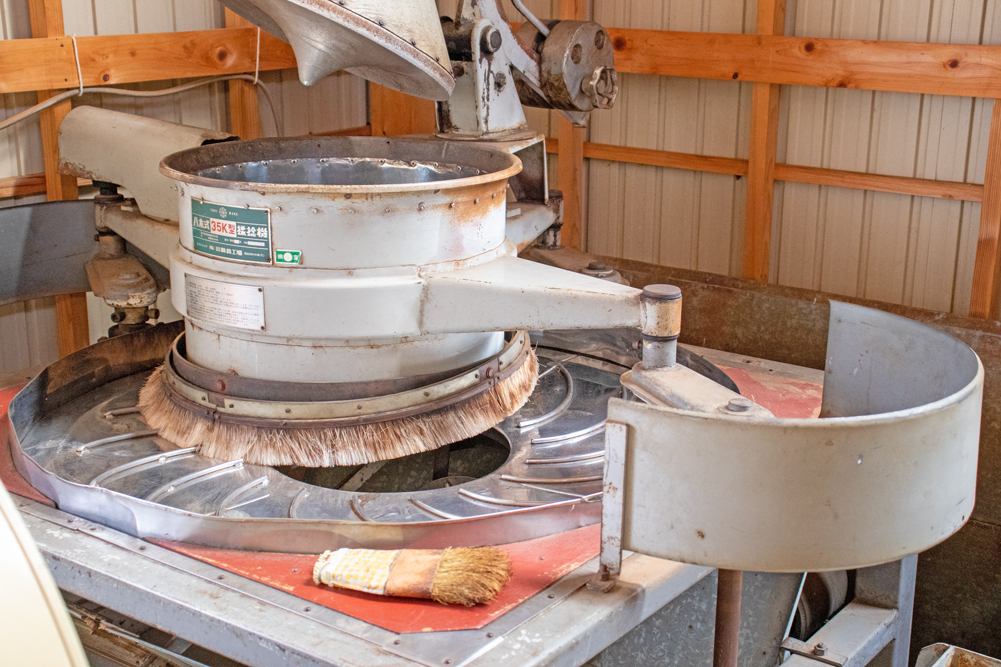
As a consequence, American-made luxury cars gradually faded from prominence in the automotive market, leading to a temporary decline in the US car industry. However, this downturn was eventually offset by the emergence of Japanese car manufacturers like Toyota and Honda, which established manufacturing facilities in the US.
Today, Japanese car manufacturers like Toyota and Honda have established manufacturing facilities in the U.S., contributing to the development of the American economy through the creation of jobs for American workers.
Drawing parallels, a similar trend may be unfolding within the tea industry.
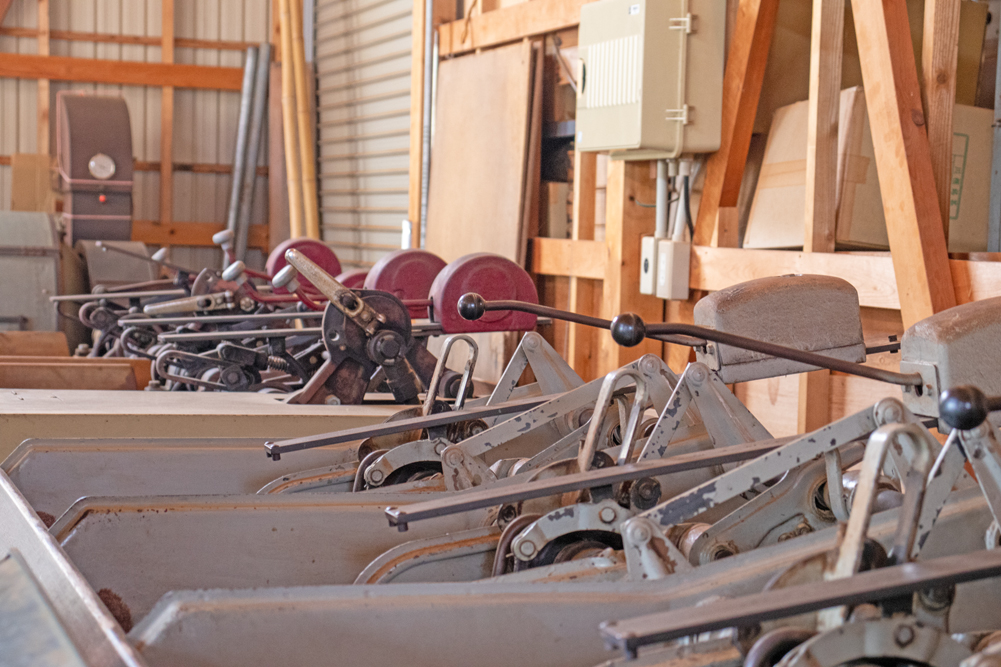
–Indeed, there seems to be a fascinating parallel between the evolutionary trajectories of cars and tea. From humble beginnings as horse-drawn carriages to the advent of foreign luxury cars and sports vehicles, and ultimately the proliferation of affordable mass-market automobiles. Similarly, tea has traversed a comparable journey, evolving from bancha to high-end varieties, and now embracing innovative forms like plastic bottles.
Absolutely, the modern mass-market cars boast unprecedented levels of sophistication, mirroring the evolution of tea into readily available, delicious PET bottled varieties. For individuals juggling work and consumption simultaneously, affordable and flavorful bottled tea represents the pinnacle of convenience and satisfaction.
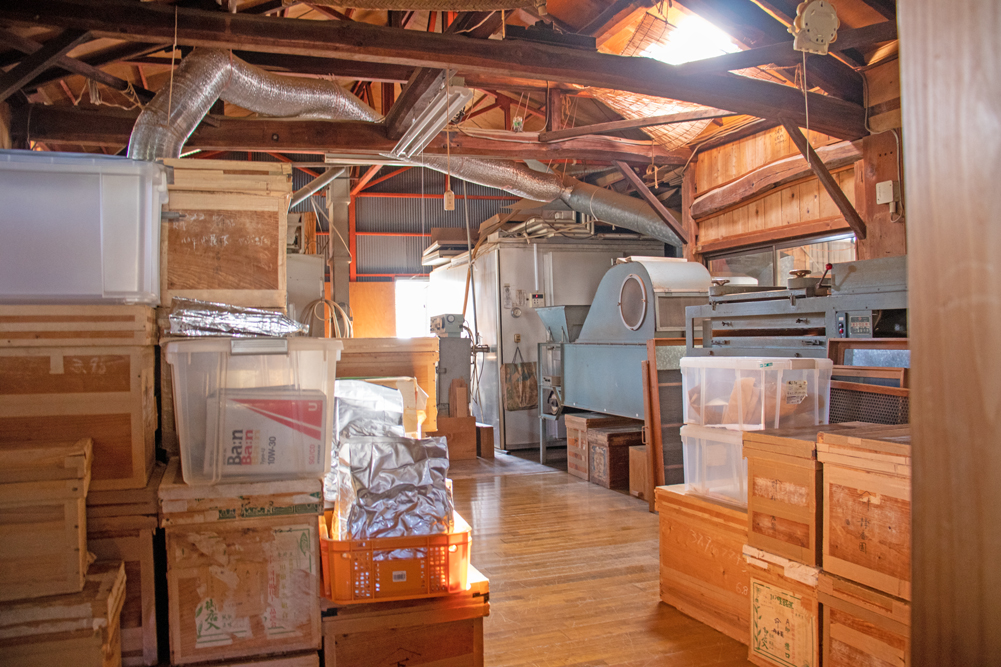
If you can achieve mass production and sales while upholding a consistent level of quality, it’s inevitable that the product will attract widespread consumer interest. The tea industry has increasingly embraced this trend, and I don’t necessarily view it as a negative development. In fact, I believe it represents a remarkably convenient era, one that has effectively stimulated economic growth in certain respects.
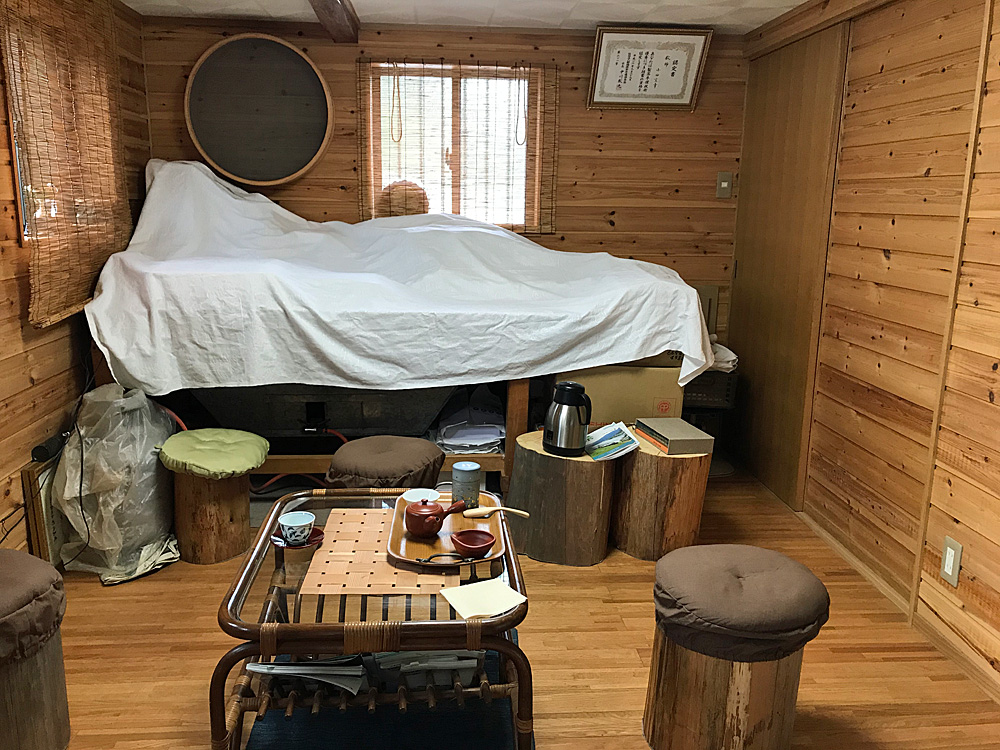
The pressure to meet consumers’ demands for both affordability and quality has become increasingly challenging for tea farmers today. Many are finding it difficult to sustain their operations under these conditions, leading to a growing number of exits from the industry.
Furthermore, in a globalized marketplace, the competition is fierce, and countries with vast resources like China are poised to dominate. With its immense population and expansive landmass, China holds a significant advantage over smaller tea-producing nations like Japan. As a result, some may fear that Japan’s ability to compete on a global scale may diminish over time.
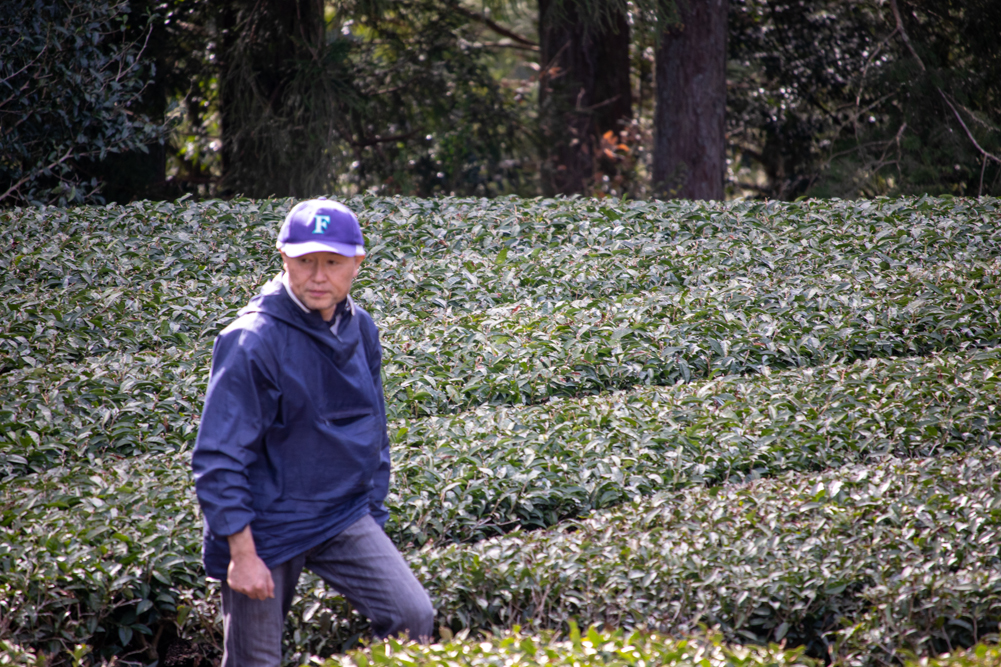
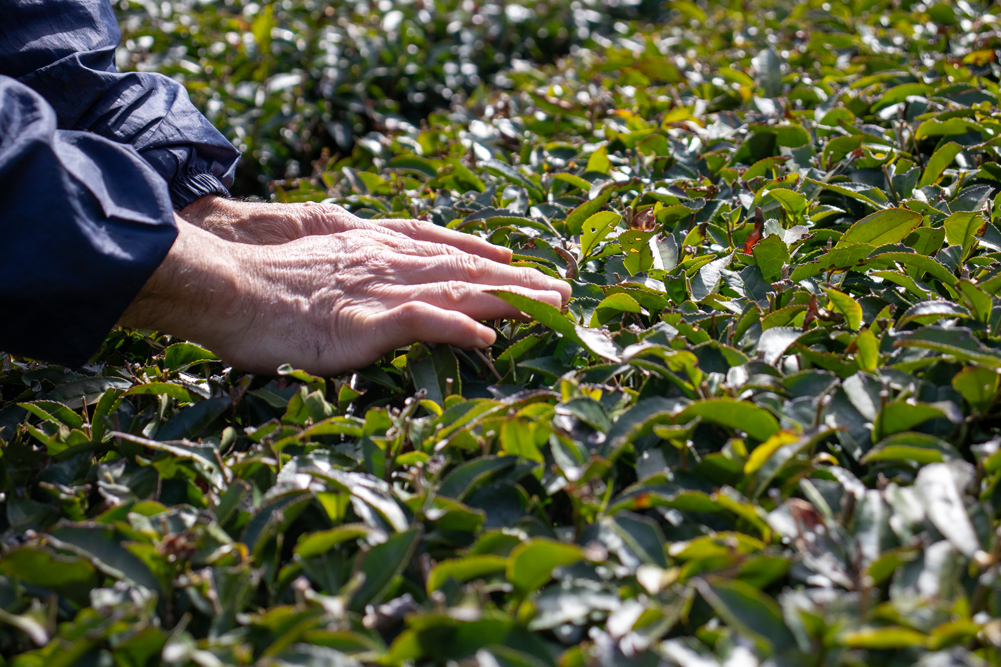
Good News for Tea Lovers! The Opportunity to Indulge in Rare and Exquisite Teas Conveniently.
While producers of high-quality tea may perceive a decline in the industry, there’s a silver lining for tea lovers. The decreased demand has led to a surplus of high-quality tea, making it more accessible than ever before. In fact, it’s now possible to obtain rare teas that were once reserved for the elite.
–In essence, the world of premium tea is now within reach for the average consumer, offering a delightful array of options right at their doorstep.
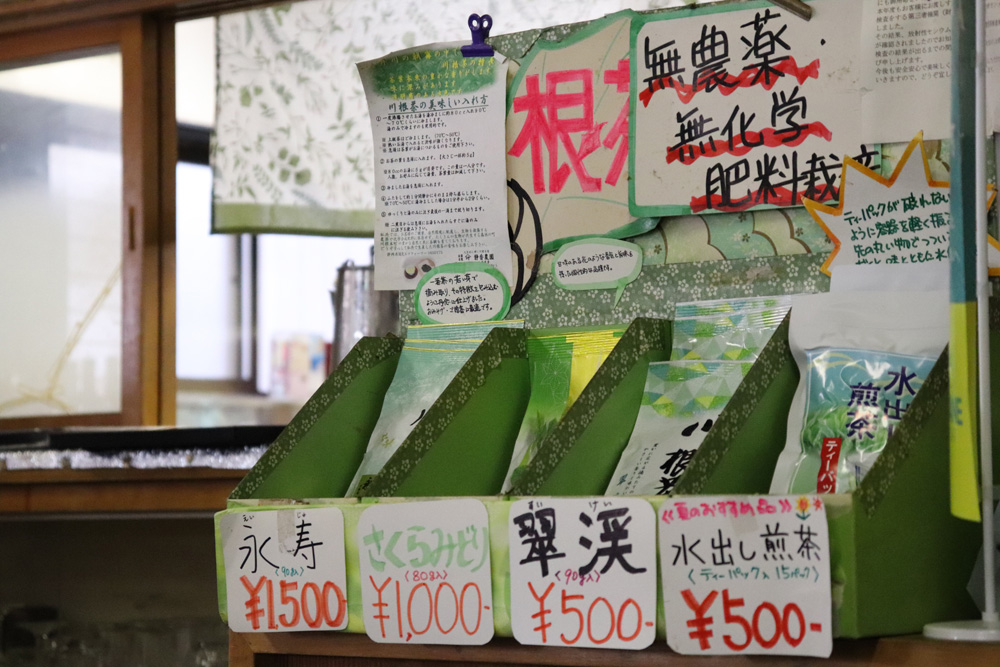
The flavors of high-quality teas are characterized by their complexity, featuring layers of aroma, sweetness, umami, and astringency. Once you become acquainted with these nuanced tastes, your experience of drinking tea may undergo a transformation.
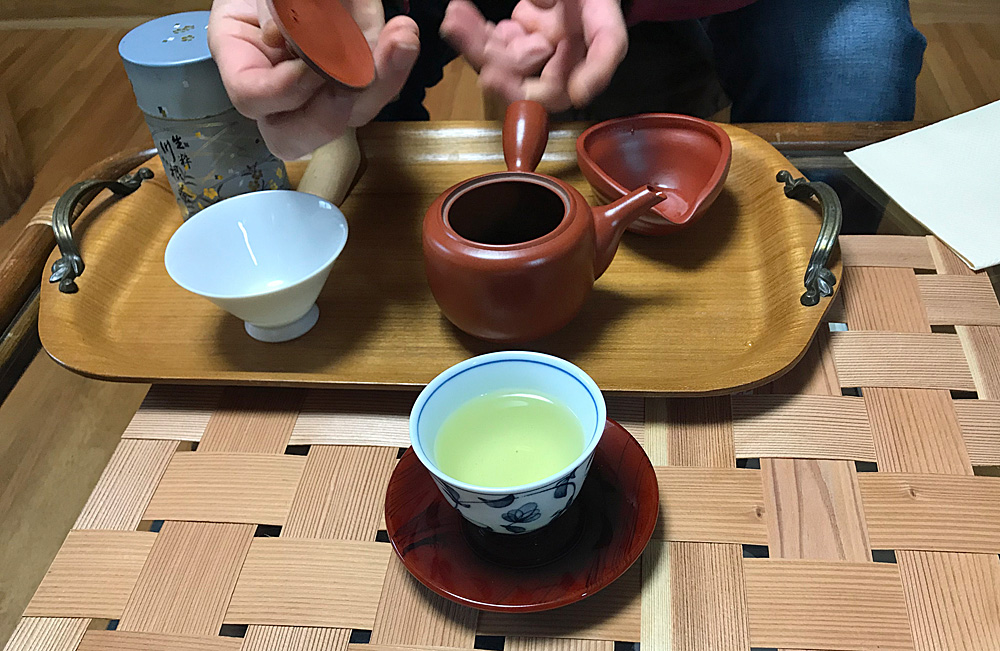
For me, personally, the act of enjoying tea transcends mere refreshment—it’s a cherished ritual, a moment of tranquility amidst the hustle and bustle of daily life. Beyond its health benefits, tea has a remarkable ability to uplift the spirit and soothe the soul. Indeed, overseas, tea and matcha are gaining recognition as superfoods, drawing attention from health-conscious individuals worldwide.
Yet, there’s something inherently special about savoring a cup of high-quality tea in its purest form, free from the confines of a plastic bottle. It’s a moment to be savored, a time to appreciate the craftsmanship and complexity of the tea leaves.
May we all continue to cherish and delight in the simple pleasure of enjoying a cup of high-quality tea, honoring its rich tradition and timeless allure.
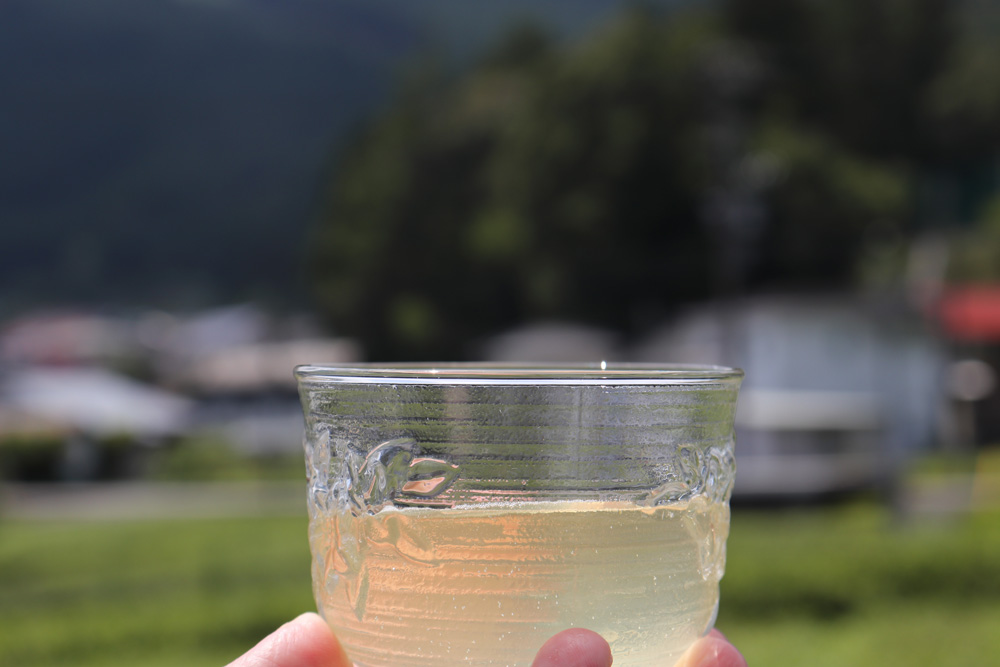
Recommended articles : Taruwakien’s Vision of an Organic Tea Factory in the Sky【Kawane Tea, Shizuoka Prefecture】
Recommended articles : Kamairicha Shibamoto invites you into the aromatic world of matured tea【Kamairicha, Shizuoka Prefecture】
Information Of Shizuka Nouen
| Address | Never visit without a prior appointment! |
| Website | http://kawanechashizuka.sakura.ne.jp/ |
| Phone number | +81 547-57-2537 |
| E-money and credit cards: | Not Available |
| Open | Contact Shizuka Nouen |
| Closed | Contact Shizuka Nouen |
| Parking lot | Available(1 car) |
| Writer | Norikazu Iwamoto |
| Career | Ochatimes chief editer. Meeting with Vice Governor of Shizuoka prefecture. Judge of Shizuoka 100 tea’s award in 2021~24. Ocha Times link introduced at website of World O-CHA(Tea) Festival 2022, Tea Science Center, The City of Green Tea Shizuoka, Ministry of Agriculture, Forestry and Fisheries. |
| English translator | Calfo Joshua |
| Career | Born and raised in England, living in Japan since 2016. Studying arboriculture in Shizuoka Prefecture whilst operating his landscape business Calfo Forestry. Appreciating the nature of Japan and the culture that places such importance in it. |


 Go to Japanese page
Go to Japanese page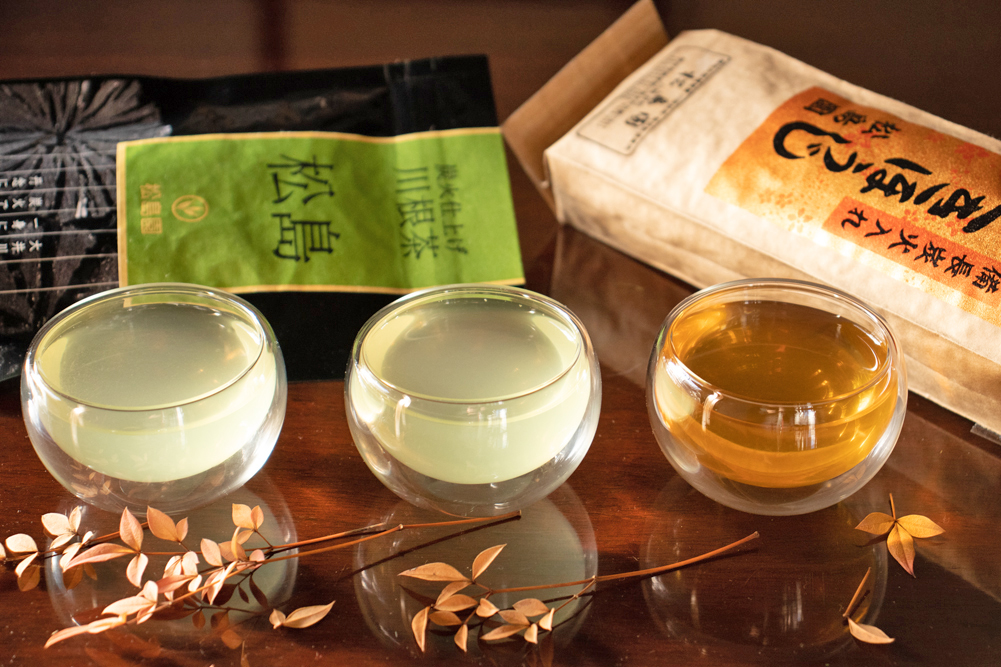
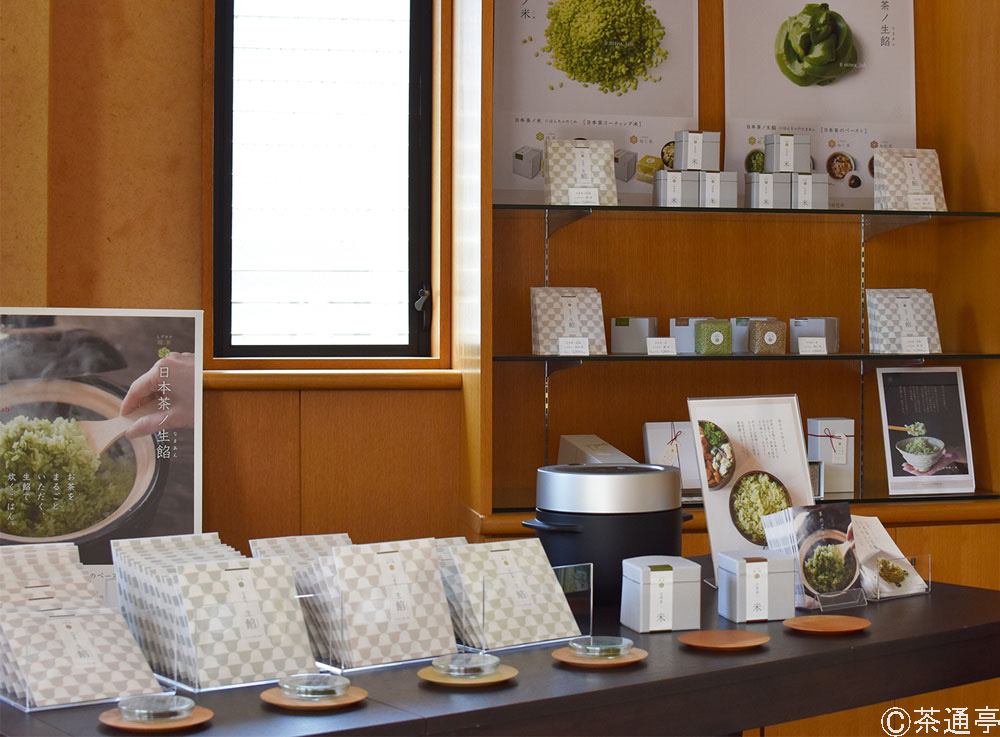
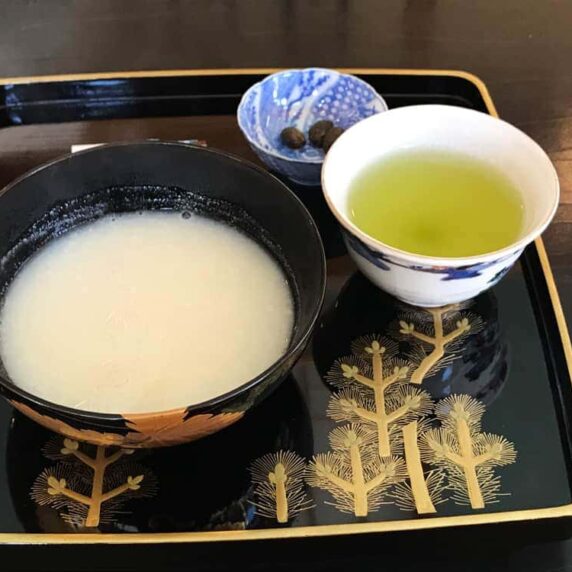
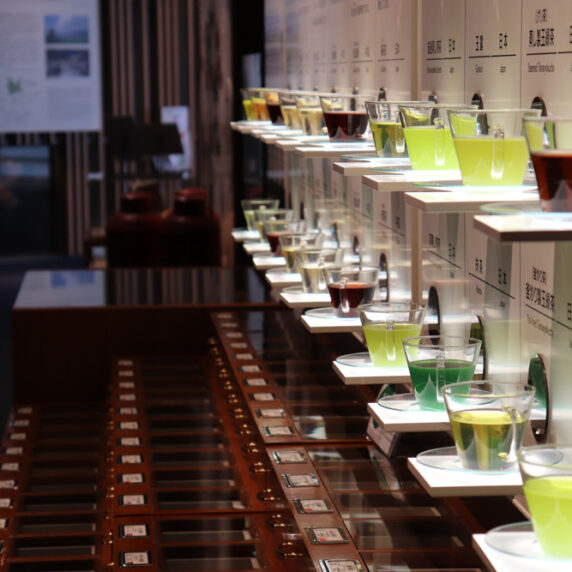
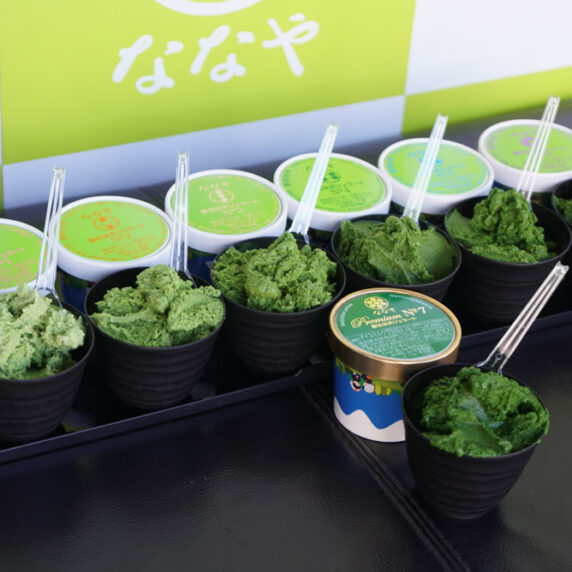




 on the red bar to close the slide.
on the red bar to close the slide. to see the
distance between the current location to the Chaya.
to see the
distance between the current location to the Chaya.